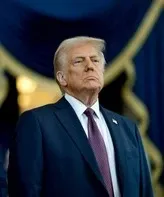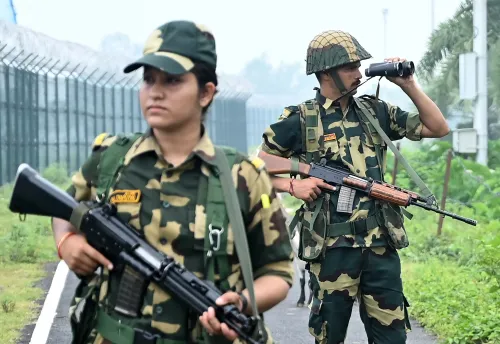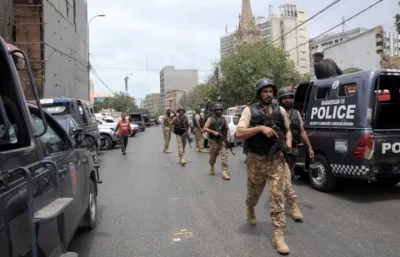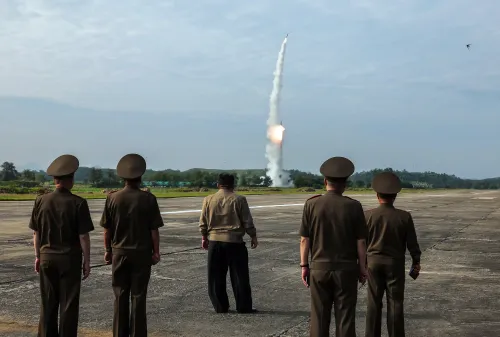Is California's Lawsuit Against Trump Over National Guard Deployment Justified?

Synopsis
Key Takeaways
- California has filed a lawsuit against Trump regarding National Guard deployment.
- The lawsuit claims the deployment is unconstitutional and politically motivated.
- Tensions have escalated between protesters and law enforcement in Los Angeles.
- Trump's response includes threats of retaliation against demonstrators.
- This case may influence future federal-state relations during civil unrest.
Sacramento, June 10 (NationPress) The state of California has initiated legal action against the Trump administration for the deployment of the National Guard in Los Angeles during ongoing protests against federal immigration raids. The state deems this action "an unmistakable step toward authoritarianism."
Governor Gavin Newsom and Attorney General Rob Bonta announced on Monday that they have filed a lawsuit aimed at halting what they describe as an "illegal and unnecessary takeover" of the state's National Guard, which they believe has exacerbated chaos and violence in the Los Angeles area.
The lawsuit targets President Donald Trump, Defense Secretary Pete Hegseth, and the Department of Defense, asserting that the takeover breaches the US Constitution and oversteps the president's Title 10 authority. This claim is based on the fact that the deployment was executed without the governor's consent, as mandated by federal law, and was deemed unwarranted, according to a statement released by the governor's office on Monday, as reported by Xinhua news agency.
The protests initially arose in response to immigration enforcement operations, with recent federal efforts focusing on major Democratic-led cities, including Los Angeles, Chicago, and New York.
Tensions escalated last Friday when some demonstrators clashed with law enforcement, throwing objects, prompting police to respond with pepper balls and flash-bang devices.
In response to the unrest, Trump ordered 2,000 National Guard members to be deployed on Saturday. Protests grew in intensity on Sunday, with increasing numbers of demonstrators and heightened confrontations with law enforcement.
Attorney General Bonta stated, "President Trump's order to federalize National Guard troops in Los Angeles—against the wishes of the Governor and local law enforcement—is unnecessary and counterproductive." He added, "The President is attempting to manufacture chaos and crisis for his political agenda. Federalizing the California National Guard is an abuse of presidential authority, and we are seeking a court's intervention to stop this unlawful and unprecedented order."
Governor Newsom described the National Guard's deployment as "a manufactured crisis," accusing Trump of "deliberately instigating chaos, terrorizing communities, and undermining our democratic principles." He stated, "This is an unmistakable step toward authoritarianism. We will not allow this to happen."
Following the lawsuit's announcement, Trump took to social media, warning that his administration would "hit back" if protesters "spit" at National Guard members. He declared, "I promise you they will be hit harder than ever before. Such disrespect will not be tolerated!"
On Monday, Trump suggested that Newsom should face arrest. In response, Newsom expressed on social media, "The President of the United States just called for the arrest of a sitting Governor. This is a day I hoped I would never witness in America."









